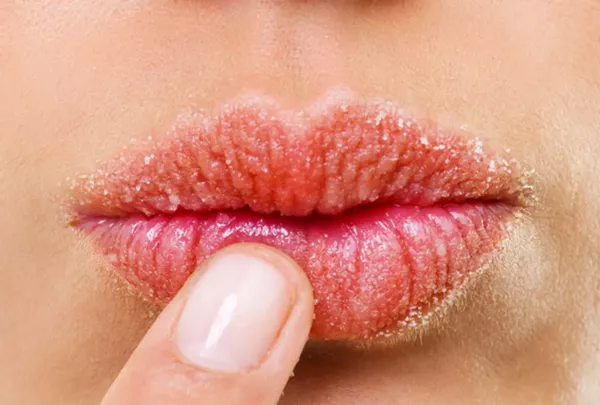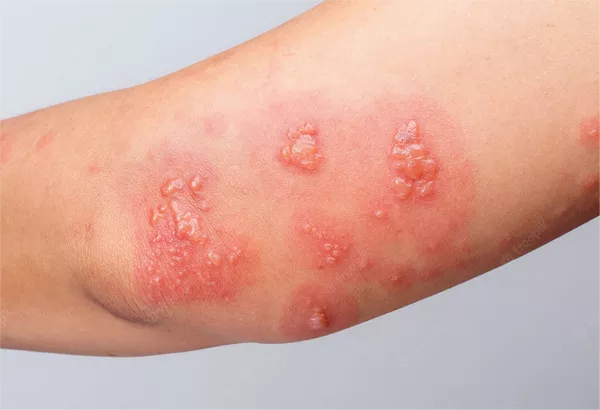Eczema is a common skin condition that causes inflammation, redness, and itching. It can affect people of all ages, and while there is no cure, several home remedies may help manage symptoms and provide relief. If you’re looking for natural treatments, this article will explore a variety of remedies that may ease the discomfort associated with eczema.
Understanding Eczema
Before diving into home remedies, it is important to understand what eczema is. Eczema, also known as atopic dermatitis, is a condition where the skin becomes irritated, inflamed, and itchy. It often occurs in cycles, with flare-ups followed by periods of calm. Symptoms can range from mild dryness to severe patches of raw, inflamed skin.
The exact cause of eczema is unknown, but it is believed to be triggered by a combination of genetic and environmental factors. Those with eczema have a skin barrier that is not functioning properly, which leads to moisture loss and increased sensitivity to irritants.
Why Consider Home Remedies?
While there are prescription medications available to treat eczema, many people prefer to try home remedies to avoid side effects or because they are looking for a more natural approach. Home remedies can help soothe the skin, reduce inflammation, and manage the symptoms of eczema. However, it is important to note that everyone’s skin is different, so it may take some trial and error to find what works best for you.
Top Home Remedies for Eczema
Here are some of the most effective and commonly used home remedies for eczema.
1. Oatmeal Baths
Oatmeal is a well-known soothing remedy for dry and irritated skin. Colloidal oatmeal, which is finely ground oats, can be added to a bath to help calm inflammation and itching. It contains compounds called avenanthramides, which have anti-inflammatory and antioxidant properties.
To use oatmeal for eczema, fill your bathtub with lukewarm water and add about 1 to 2 cups of colloidal oatmeal. Soak in the bath for 15-20 minutes. Avoid using hot water, as it can irritate the skin further. After soaking, gently pat your skin dry with a soft towel and apply a moisturizer.
2. Coconut Oil
Coconut oil is another popular natural remedy for eczema. It has moisturizing properties that help to repair the skin barrier and prevent moisture loss. Coconut oil also contains lauric acid, which has antimicrobial properties and can help protect the skin from infections.
To use coconut oil for eczema, apply a thin layer of virgin coconut oil to the affected areas of your skin. It is best to use it after a bath or shower while the skin is still damp, as this will help lock in moisture. You can apply it multiple times a day to keep the skin hydrated.
3. Aloe Vera
Aloe vera is widely known for its cooling and soothing effects on the skin. It has anti-inflammatory properties and can help reduce redness, swelling, and irritation. Aloe vera gel is particularly helpful for soothing eczema flare-ups.
You can use fresh aloe vera gel from the plant or purchase aloe vera gel from a store. Apply a thin layer of aloe vera gel to the affected areas and leave it on for 10-15 minutes before rinsing it off. This can be repeated several times a day to help calm the skin.
4. Honey
Honey is a natural humectant, meaning it draws moisture into the skin. It also has antibacterial and anti-inflammatory properties, which makes it beneficial for eczema treatment. Honey can help to hydrate dry skin and reduce the risk of infections, which can occur when the skin is scratched.
To use honey for eczema, apply a thin layer of raw, organic honey to the affected areas. Leave it on for about 20 minutes, then rinse off with warm water. You can also mix honey with oatmeal or yogurt to create a soothing paste.
5. Apple Cider Vinegar
Apple cider vinegar has been used for centuries as a natural remedy for various skin conditions, including eczema. It has antiseptic properties and can help balance the skin’s pH level. However, it is important to use it in moderation, as undiluted apple cider vinegar can irritate sensitive skin.
To use apple cider vinegar for eczema, dilute it with water in a 1:1 ratio. Apply the solution to the affected areas using a cotton ball or soft cloth. Leave it on for a few minutes and rinse off with lukewarm water. If you have very sensitive skin, you may want to skip this remedy.
6. Fish Oil
Fish oil, particularly omega-3 fatty acids, is beneficial for reducing inflammation and promoting healthy skin. Omega-3s can help to reduce the severity of eczema flare-ups by controlling the body’s inflammatory response. Fish oil supplements can be taken orally, but some people prefer to use fish oil topically.
To use fish oil for eczema, apply a small amount of the oil to the affected skin and massage it gently. Alternatively, you can take fish oil supplements according to the recommended dosage on the package. As always, consult with your doctor before adding a supplement to your routine.
7. Witch Hazel
Witch hazel is an astringent that can help reduce swelling and inflammation. It also has antibacterial properties, which can help prevent skin infections that often accompany eczema flare-ups. Witch hazel can help soothe irritated skin and provide relief from itching.
To use witch hazel for eczema, soak a cotton ball in witch hazel and apply it to the affected areas. Let it sit for a few minutes before rinsing it off with warm water. Witch hazel can be used several times a day, but it is important to check for any irritation before applying it liberally.
8. Tea Tree Oil
Tea tree oil is known for its anti-inflammatory and antiseptic properties, which can help reduce eczema symptoms. It can help prevent infections and calm itching and redness. However, tea tree oil should always be diluted before applying it to the skin, as it can cause irritation if used undiluted.
To use tea tree oil for eczema, dilute a few drops of tea tree oil in a carrier oil, such as coconut oil or olive oil. Apply the mixture to the affected areas and gently massage it into the skin. You can use this remedy once or twice a day.
9. Olive Oil
Olive oil is rich in antioxidants and healthy fats, which can help moisturize and soothe dry skin. It also has anti-inflammatory properties that can help calm eczema flare-ups. Olive oil is a great option for individuals who want to maintain a healthy skin barrier.
To use olive oil for eczema, simply apply a thin layer of extra virgin olive oil to the affected areas. You can do this after a bath or shower to lock in moisture. Olive oil can be used multiple times a day.
10. Baking Soda
Baking soda can help soothe irritated skin and reduce itching. It also has anti-inflammatory properties that may help calm flare-ups of eczema. Additionally, baking soda can help to balance the pH of the skin and prevent further irritation.
To use baking soda for eczema, add a cup of baking soda to a lukewarm bath and soak for 10-15 minutes. Alternatively, you can make a paste by mixing baking soda with a small amount of water and applying it directly to the affected areas. Rinse off after a few minutes.
Additional Tips for Managing Eczema at Home
Along with home remedies, there are several other steps you can take to manage eczema and prevent flare-ups:
Moisturize Regularly: Keeping the skin moisturized is one of the most important steps in managing eczema. Use a thick, fragrance-free moisturizer several times a day, especially after bathing.
Avoid Irritants: Common irritants like harsh soaps, detergents, and fragrances can make eczema worse. Try to use gentle, fragrance-free products to protect your skin.
Keep the Skin Cool: Heat and sweating can trigger eczema flare-ups. Try to stay cool and avoid long, hot showers.
Wear Soft Fabrics: Rough fabrics like wool can irritate the skin. Opt for soft, breathable fabrics like cotton to reduce the risk of irritation.
Manage Stress: Stress can exacerbate eczema, so try to find ways to relax and manage stress. Techniques like meditation, yoga, and deep breathing can be helpful.
When to See a Doctor
While home remedies can be helpful in managing eczema, it’s important to consult a healthcare professional if the condition worsens or does not improve. A doctor may prescribe prescription creams, oral medications, or other treatments to manage severe eczema.
Conclusion
Eczema can be a frustrating condition, but with the right home remedies, it is possible to find relief. Oatmeal baths, coconut oil, aloe vera, honey, and other natural treatments can help soothe the skin and reduce inflammation. Remember to keep the skin moisturized, avoid triggers, and manage stress for the best results. Always listen to your skin and consult a healthcare provider if needed.
Related topics



























